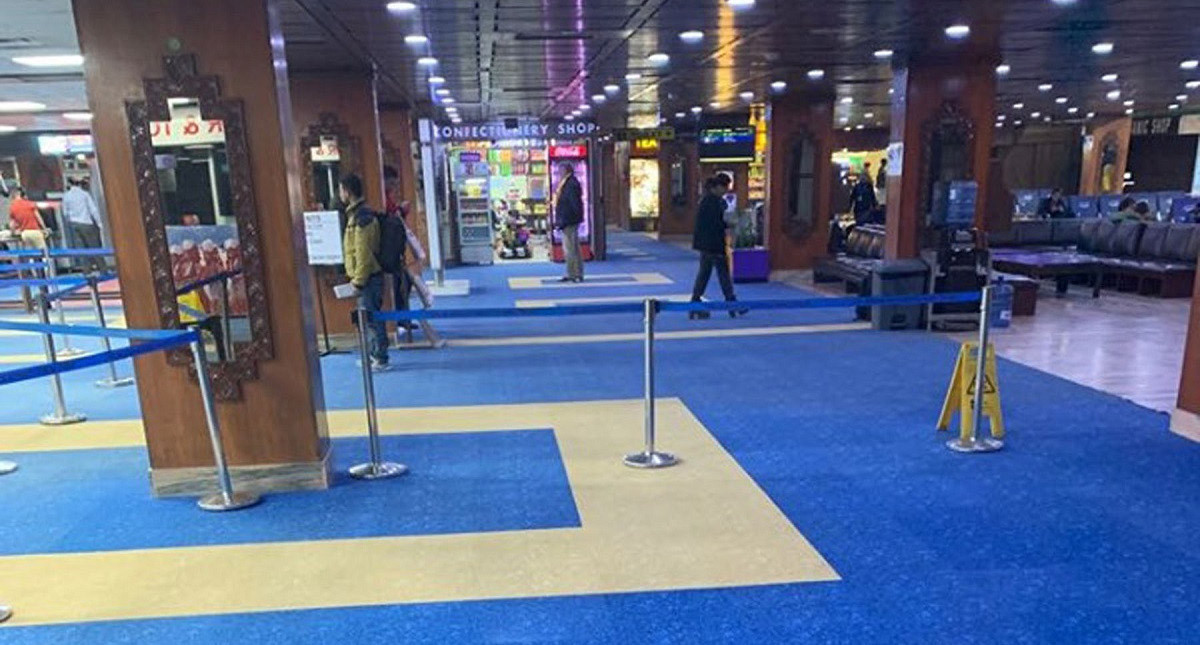The government has refused the proposal of the UAE to bring 1,120 Nepalis stranded there free of cost through its national flag carrier Etihad Airways.
The UAE had proposed on Monday to bring them through chartered flights from September 4-18 and expressed commitment that only the Nepalis who test negative for COVID-19 will be brought—they do not even have to even pay for PCR tests—and assured that only those recommended by the Nepali Embassy there would be brought.
But the Ministry of Culture, Tourism and Civil Aviation turned down the proposal citing that it has already prepared schedule for regular and chartered flights for a month and the country cannot bring more than 800 persons a day.
These Nepalis will have to pay up to Rs 125,000 in regular fare to come to Kathmandu from the UAE while the rate for chartered flights was only up to Rs 60,000. "The fare is very high even for those who want to pay. It is higher than the two-way fare of normal times. And the government is stopping those who will be brought free of cost. The Nepalis whose visa has expired have to pay fine from September 11 on top of that," an entrepreneur told Setopati.
Secretary at the ministry Kedar Bahadur Adhikari pointed that the government cannot provide quarantine and isolation facilities for more than 800 persons a day.
That is in stark contrast to Minister for Culture, Tourism and Civil Aviation Yogesh Bhattarai's assertions that those testing negative can be sent to home quarantine after signing conditions. "I don't know about this. I will comment when I know about it," Minister Bhattarai told Setopati when asked why the UAE's proposal has been turned down citing lack of quarantine facilities.
The government officials may point that the UAE can send the Nepalis through Nepali airlines if they want to send them free, and it is trying to give business to Etihad. But the UAE is well within its right to give business to its national flag carrier with the money it spends to send Nepalis for free.
Some say that the government's refusal is not due to its policy of protecting Nepali airlines companies but because Nepali travel agents will not get any business if the Nepalis are sent in Etihad.
They say that a handful of entrepreneurs have been making hay throughout the pandemic by getting commission even in the chartered flights agreed directly with other governments, and the same entrepreneurs may have influenced the government to refuse the UAE proposal.
The Nepalis stranded abroad had to wait for almost three months after the government stopped international flights from March 24. Many countries operated chartered flights to rescue their nationals stranded here in Nepal. Their planes arrived here empty or Nepali planes that took them returned empty due to the government policy.
The government allowed chartered flights to Nepal only from June 14 and the Nepalis had to pay a very high fare, part of which went to the ticketing agents, for chartered flights. Nepali workers, who could have arrived at a significantly lower fare if they were allowed in the empty planes that arrived for or returned after chartered flights to rescue foreign nationals, had to pay a very high fare.
The government is now compounding matters refusing to even allow the UAE to bring Nepali workers home free of cost.

